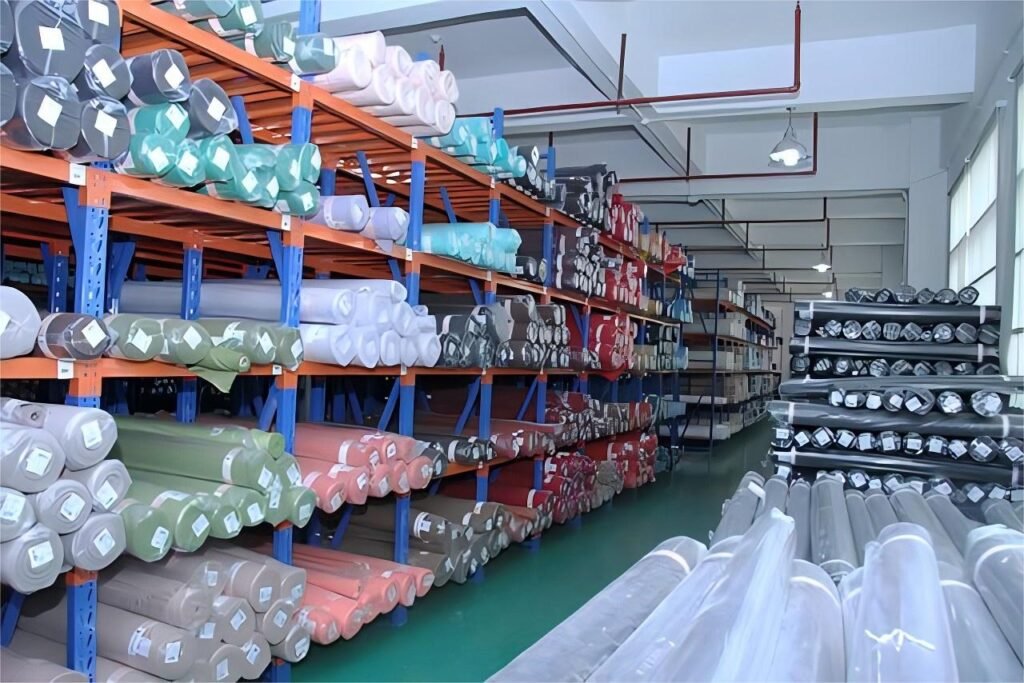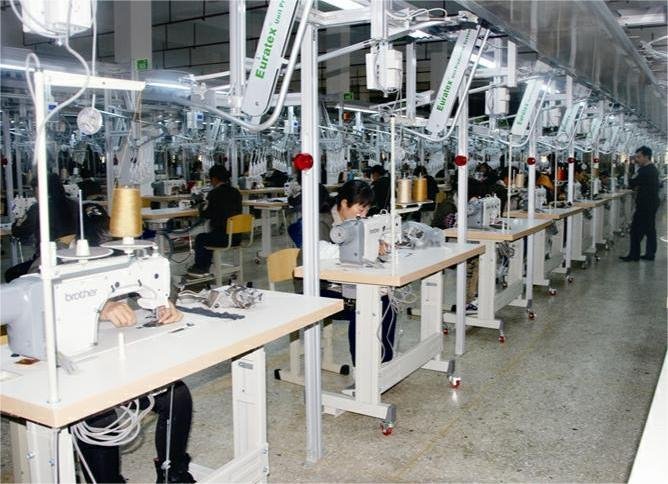No products in the cart.
Custom Yoga Pants
Clothes Wholesale Suppliers: Reliable Partners for Your Fashion Business
Introduction: The Importance of Clothes Wholesale Suppliers in the Fashion Industry
The fashion industry is a highly competitive and fast-paced industry that requires constant innovation and adaptation to stay ahead. One crucial aspect of running a successful fashion business is having reliable and efficient clothes wholesale suppliers. These suppliers play a vital role in the supply chain management of fashion businesses, providing them with the necessary inventory to meet customer demands.

Benefits of Partnering with Clothes Wholesale Suppliers for Your Fashion Business
Partnering with clothes wholesale suppliers offers numerous benefits for fashion businesses. Firstly, it allows businesses to access a wide range of clothing options at competitive prices. Wholesale suppliers often have extensive catalogs of clothing items, including various styles, sizes, and colors, enabling fashion businesses to cater to diverse customer preferences.
Secondly, clothes wholesale suppliers provide businesses with the flexibility to order in bulk. This is particularly advantageous for businesses that experience fluctuating demand or seasonal trends. By ordering in bulk, businesses can take advantage of economies of scale, reducing their per-unit costs and increasing their profit margins.
Furthermore, partnering with clothes wholesale suppliers can help fashion businesses streamline their operations. Instead of dealing with multiple suppliers, businesses can consolidate their orders with a single supplier, simplifying the procurement process and reducing administrative costs. This allows businesses to focus on other critical aspects of their operations, such as marketing and customer service.

How to Choose the Right Clothes Wholesale Supplier for Your Fashion Business
Choosing the right clothes wholesale supplier is crucial for the success of a fashion business. Here are some key factors to consider when evaluating potential suppliers:
1. Reliability: Look for suppliers with a proven track record of delivering orders on time and in the expected condition. This can be determined by checking customer reviews and testimonials.
2. Quality: Ensure that the supplier offers high-quality clothing items that meet your business’s standards. Request samples or visit their showroom to assess the quality firsthand.
3. Pricing: Compare prices from different suppliers to ensure you are getting the best value for your money. However, be cautious of suppliers offering significantly lower prices, as this may indicate lower quality or unethical practices.
4. Range of Products: Consider the supplier’s product range and whether it aligns with your business’s target market and aesthetic. A diverse range of options will allow you to cater to a broader customer base.
5. Customer Service: Evaluate the supplier’s responsiveness, communication skills, and willingness to address any concerns or issues promptly. Good customer service is essential for a smooth and successful partnership.
Top Clothes Wholesale Suppliers in the Fashion Industry
The fashion industry is home to numerous clothes wholesale suppliers, each offering unique products and services. Here are some of the top wholesale suppliers in the industry:
1. Alibaba: As one of the largest online marketplaces, Alibaba connects businesses with suppliers from around the world. It offers a wide range of clothing options at competitive prices.
2. FashionGo: FashionGo is a popular online platform that connects fashion retailers with wholesale suppliers. It offers a vast selection of trendy clothing items from various brands.
3. LA Showroom: LA Showroom is a leading wholesale marketplace for fashion and accessories. It features a curated collection of products from established and emerging designers.
4. Tasha Apparel: Tasha Apparel is a Los Angeles-based wholesale supplier that specializes in trendy and affordable clothing for women. They offer a wide range of styles, from casual to formal wear.
5. Wholesale Fashion Square: Wholesale Fashion Square is a wholesale clothing supplier that offers a diverse range of clothing items for men, women, and children. They provide competitive pricing and fast shipping.
Factors to Consider When Evaluating Clothes Wholesale Suppliers
When evaluating clothes wholesale suppliers, it is essential to consider several factors to ensure a successful partnership. These factors include:
1. Minimum Order Quantity (MOQ): Determine whether the supplier’s MOQ aligns with your business’s needs and budget. Some suppliers may have high MOQs, which may not be feasible for small businesses.
2. Shipping and Delivery: Assess the supplier’s shipping and delivery options, including costs, delivery times, and tracking capabilities. Reliable and efficient shipping is crucial to meet customer expectations.
3. Return and Exchange Policies: Understand the supplier’s return and exchange policies, including any associated costs or restrictions. This is important in case you receive defective or unsatisfactory products.
4. Payment Terms: Discuss and negotiate payment terms with the supplier, such as upfront payments, credit terms, or payment upon delivery. Choose a payment method that aligns with your business’s financial capabilities.
5. Ethical and Sustainable Practices: Consider the supplier’s commitment to ethical and sustainable practices, such as fair labor conditions, environmentally friendly production processes, and responsible sourcing of materials.
Tips for Negotiating with Clothes Wholesale Suppliers
Negotiating with clothes wholesale suppliers can help businesses secure better pricing and terms. Here are some tips for successful negotiations:
1. Research and Compare: Research the market and compare prices from different suppliers to have a benchmark for negotiations. This will give you leverage when discussing pricing with potential suppliers.
2. Build a Relationship: Establish a good rapport with the supplier by showing genuine interest in their products and business. Building a relationship based on trust and mutual respect can lead to more favorable negotiations.
3. Bulk Orders: Offer to place larger orders to negotiate better pricing. Suppliers are often willing to provide discounts for bulk orders as it guarantees them consistent business.
4. Long-Term Commitment: Express your willingness to establish a long-term partnership with the supplier. This can incentivize them to offer more favorable terms and pricing.
5. Flexibility: Be open to compromise and find mutually beneficial solutions. Negotiations should be a win-win situation for both parties involved.
The Role of Clothes Wholesale Suppliers in Supply Chain Management
Clothes wholesale suppliers play a crucial role in the supply chain management of fashion businesses. They act as intermediaries between manufacturers and retailers, ensuring a smooth flow of products from production to the end consumer.
Wholesale suppliers source clothing items from manufacturers, often in large quantities, and store them in their warehouses. They then distribute these products to retailers, either directly or through a network of distributors. This allows retailers to access a wide range of clothing options without having to deal with multiple manufacturers individually.
Furthermore, clothes wholesale suppliers handle logistics, including inventory management, order fulfillment, and shipping. They ensure that retailers receive their orders on time and in the expected condition, minimizing disruptions in the supply chain.
How Clothes Wholesale Suppliers Help in Maintaining Competitive Pricing
Maintaining competitive pricing is crucial for fashion businesses to attract customers and stay ahead in the market. Clothes wholesale suppliers play a significant role in helping businesses achieve this by offering competitive pricing themselves.
Wholesale suppliers often have established relationships with manufacturers and can negotiate better pricing due to their bulk purchasing power. They pass on these cost savings to their customers, allowing fashion businesses to offer competitive prices to their end consumers.
Additionally, clothes wholesale suppliers help businesses maintain competitive pricing by offering discounts for bulk orders or providing special promotions and deals. These incentives enable businesses to lower their per-unit costs and increase their profit margins, making them more competitive in the market.
Ensuring Quality Control with Clothes Wholesale Suppliers
Maintaining high-quality standards is crucial for fashion businesses to build a reputable brand and retain customer loyalty. Clothes wholesale suppliers play a vital role in ensuring quality control throughout the supply chain.
Wholesale suppliers typically have strict quality control processes in place to ensure that the clothing items they distribute meet industry standards and customer expectations. They conduct thorough inspections and quality checks on the products they receive from manufacturers, ensuring that they are free from defects and meet the specified requirements.
Furthermore, clothes wholesale suppliers often have established relationships with manufacturers and can provide feedback and guidance on improving product quality. They act as a bridge between manufacturers and retailers, facilitating communication and collaboration to enhance the overall quality of the products.

Building Long-Term Relationships with Clothes Wholesale Suppliers
Building long-term relationships with clothes wholesale suppliers is beneficial for fashion businesses in several ways. Firstly, it allows businesses to establish a reliable and consistent supply chain. By working with the same supplier over an extended period, businesses can develop a deep understanding of each other’s needs and expectations, leading to smoother operations and fewer disruptions.
Secondly, long-term relationships with wholesale suppliers can lead to better pricing and terms. Suppliers are more likely to offer favorable pricing and discounts to loyal customers who consistently place orders with them. This can significantly impact a business’s profitability and competitiveness in the market.
Furthermore, building long-term relationships with clothes wholesale suppliers can lead to collaboration and innovation. Suppliers may provide valuable insights and suggestions based on their industry knowledge and experience, helping businesses stay ahead of trends and meet customer demands effectively.
Expanding Your Fashion Business with the Help of Clothes Wholesale Suppliers
Expanding a fashion business can be challenging, but with the help of clothes wholesale suppliers, it becomes more manageable. Wholesale suppliers can support business expansion in several ways:
1. Access to New Markets: Wholesale suppliers often have a wide network of retailers and distributors, allowing businesses to reach new markets and expand their customer base. By partnering with a supplier that has a strong presence in a particular region or market segment, businesses can tap into new opportunities for growth.
2. Diverse Product Range: Clothes wholesale suppliers offer a diverse range of clothing options, allowing businesses to expand their product offerings. By introducing new styles, sizes, or categories, businesses can attract new customers and cater to different market segments.
3. Scalability: Wholesale suppliers are equipped to handle large orders and scale up production as businesses expand. This ensures that businesses can meet increased demand without compromising on quality or delivery times.
4. Market Insights: Wholesale suppliers have a deep understanding of market trends and consumer preferences. By leveraging their insights and expertise, businesses can make informed decisions about product development, pricing, and marketing strategies to support their expansion efforts.
Conclusion: Leveraging the Benefits of Clothes Wholesale Suppliers for Your Fashion Business
Clothes wholesale suppliers are reliable partners for fashion businesses, offering numerous benefits that contribute to their success. From providing access to a wide range of clothing options at competitive prices to streamlining operations and supporting business expansion, wholesale suppliers play a crucial role in the fashion industry’s supply chain management.
By carefully evaluating potential suppliers, negotiating favorable terms, and building long-term relationships, fashion businesses can leverage the benefits of clothes wholesale suppliers to stay competitive, maintain quality control, and meet customer demands effectively. With the right wholesale supplier by their side, fashion businesses can focus on what they do best – creating and delivering stylish and high-quality clothing to their customers.
